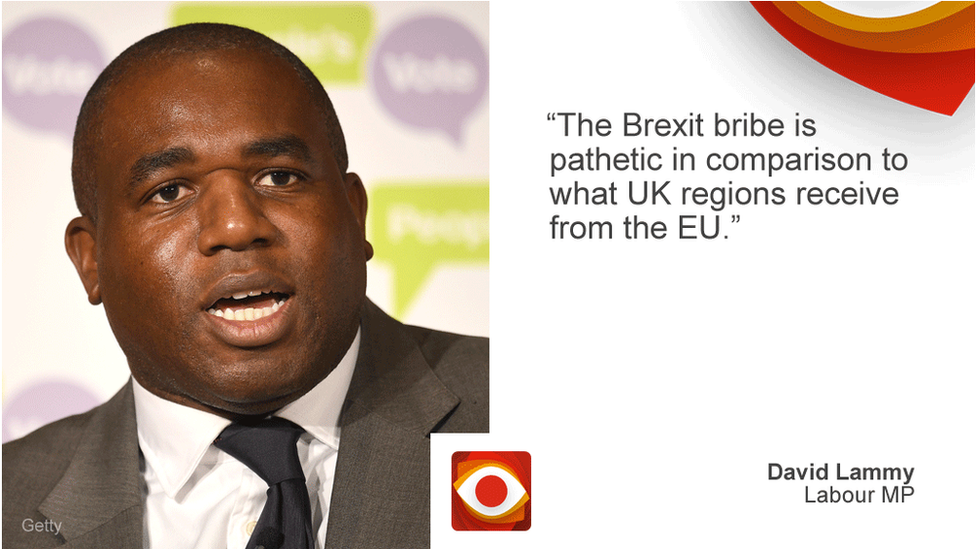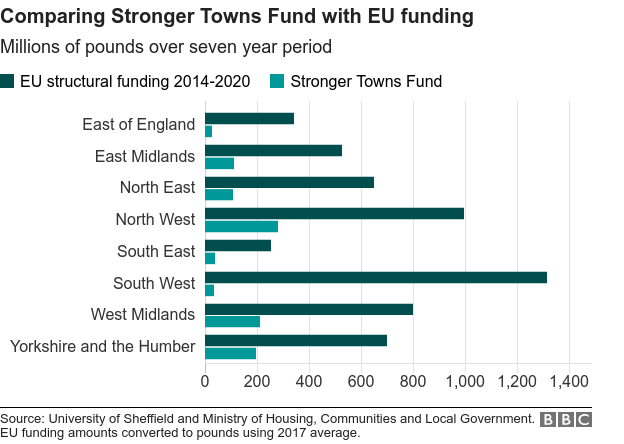Stronger Towns Fund: How does it compare with EU funding?
- Published

Labour MP David Lammy - who supports another EU referendum - has criticised the government's Stronger Towns Fund, which he describes as a "Brexit bribe".
Theresa May announced that the new fund, external will distribute £1bn over seven years to places in England that have not benefited from economic growth as much as the more prosperous areas and there will be another £600m for which areas will be able to bid.
Mr Lammy said that it was pathetic compared with what UK regions received from the EU.
EU structural funding forms a range of investments given to poorer areas to help make them more prosperous.
The University of Sheffield has compiled estimates, external for how much each region in England will have received from the EU for the seven years from 2014 to 2020. Funding until the end of 2020 has been guaranteed by the UK government, external, even if the country leaves the EU with no deal.
The Stronger Towns Fund is small by comparison.

But that's not a fair comparison. Even though the UK will lose EU structural funding when it leaves, the government has said it will come up with a Shared Prosperity Fund, external to take the place of the EU money.
However, the government hasn't said how much money will be in the replacement fund or how it will be allocated.
And it has been suggested that had the UK stayed in the EU, the poorer parts of the country would have seen an increase in their EU funding after 2020. This is because they have fallen further behind, external EU averages for prosperity since the calculations were last done.
We are only looking at English regions here because that is all that is covered in the new government policy. The government has said it will make sure that the rest of the UK also benefits from new funding.
The Ministry of Housing, Communities and Local Government told BBC News the Stronger Towns Fund was a fresh package of support and that details of the Shared Prosperity Fund would be included in the forthcoming Comprehensive Spending Review.
So it is not surprising that the chart above shows the new scheme is dwarfed by EU funding. What is interesting is the way it highlights the differing priorities between the two.
For example, among the English regions, the South West is the biggest recipient of EU funding but the second smallest recipient of the new money.



- Published4 March 2019
